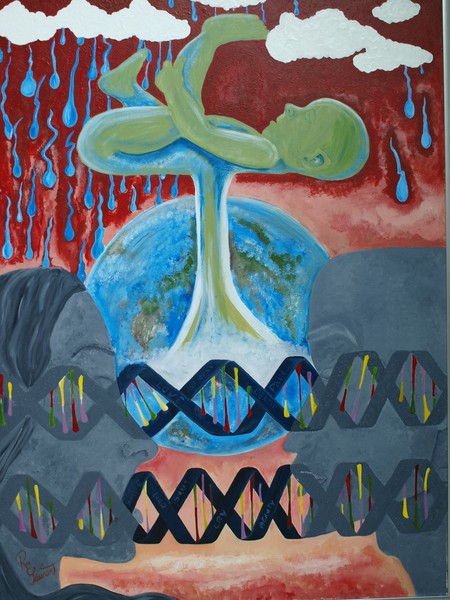- richard earthmanlaurent
- View Portfolio
- Image 2 of 8
- Added 15 Mar 2009
- 332 Views
- Share This Image On...

The scientists found that in the brains of people who committed suicide and who had been abused as children, the glucocorticoid receptor gene was dialed way down. It was producing fewer receptors (which are proteins) than was the same gene in suicide victims who had not been abused as children. Even more impressive, the scientists discovered the reason for the low rate of production: a stretch of DNA that acts as a rheostat on the receptor gene (in genetics parlance, the rheostat is a promoter region) had had a silencer slapped on it. The silencer is a methyl group, the exact same molecular entity that had silenced the receptor gene in the rats. Such changes are called “epigenetic,” to distinguish them from changes that affect the sequence of nucleotides in DNA. Epigenetics is arguably the next frontier in genetic research, promising to show why people with identical DNA, such as monozygotic twins, have different traits, including traits known to be strongly affected by genes. The answer seems to be that the events of our lives, including parental behavior, turns some genes on and some genes off. In this case, parental care (or, specifically, abuse) changed the expression of the crucial glucocorticoid-receptor gene in the brain. When I met Meaney at a 2004 conference that got neuroscientists together with the Dalai Lama, he was truly eloquent about the import of such research, as I tried to convey in my last book. For too long we have been in the grip of genetic determinism, the idea that the genes we enter the world with shape the lives we lead, that genes have behavior on a short leash. But as Meaney pointed out, that is not only defeatist—ceding responsibility for who we are and how we act to forces beyond our control—but scientifically wrong. The lives we lead reach into the very double helices of our cells.
Post a New Image Comment